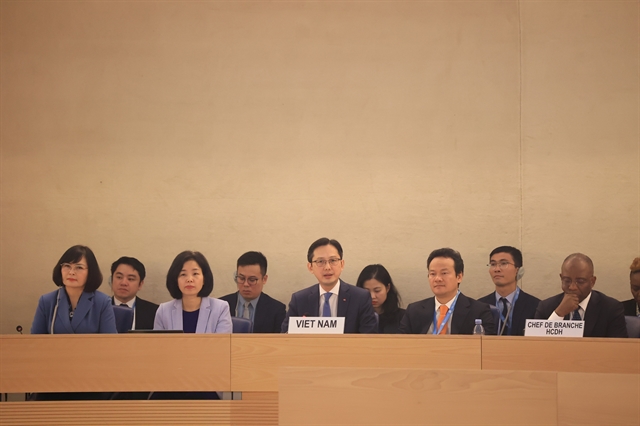 Politics & Law
Politics & Law

 |
| Việt Nam has revised 44 laws related to human rights in preparation for its national report for the fourth UPR Cycle. - VNA/VNS Photo |
HÀ NỘI — By January 2024, Việt Nam had fully implemented 209 of the 241 recommendations it received from the United Nations' Human Rights Council in the third cycle of the Universal Periodic Review (UPR). Việt Nam has also partly implemented 30 of the recommendations, and is considering implementing two others.
That was the message from Nguyễn Vũ Minh, Deputy Director of the International Organisations Department under the Ministry of Foreign Affairs, at the conference on human rights on Wednesday.
He said Việt Nam had spared no effort in implementing the UPR recommendations and the international conventions it had ratified, including the Convention Against Torture and the Convention on the Rights of People with Disabilities.
He said Việt Nam had revised 44 laws related to human rights in preparation for its national report for the fourth UPR cycle. After submitting the report, the country proceeded with the passage of the revised Law on Land in favour of vulnerable groups, ethnic minorities and religious organisations.
He said most of the participants in the fourth UPR cycle commended Việt Nam's report for providing comprehensive information on the human rights situation and appreciated the country's open and transparent approach in preparing it.
They expressed interest in Việt Nam's practices in promoting human rights, including its life cycle approach to social security, its National Action Plan on Women, Peace and Security and its efforts in gender equality and women's empowerment.
"The working group of the fourth UPR Cycle adopted Việt Nam's national report and the 320 recommendations for the country on May 10," said Minh.
He also said Việt Nam had amended the Penal Code many times from 1980 to the most recent revision in 2015 to reduce the number of crimes subject to capital punishment.
Currently, the death penalty is only applicable to those who commit particularly serious crimes related to violations of national security, infringement on human life, drugs and corruption. — VNS




